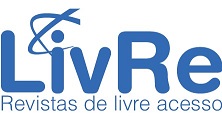INSTITUIÇÕES FILANTRÓPICAS OU SOLIDÁRIAS, MEMÓRIA, CULTURA E TEMPO PRESENTE:
INSTITUTO HUMANITÁRIO CASA DE DAVI
DOI:
https://doi.org/10.20873/rtg.v7n13p120-142Resumo
O presente trabalho apresenta considerações quanto ao princípio da solidariedade nas instituições filantrópicas de Araguaína – Tocantins, compreendendo aspectos históricos (memória, tempo presente) e culturais. Tem por objetivo esclarecer como é desenvolvido o princípio da solidariedade nas instituições filantrópicas, segundo a concepção de Émile Durkheim, se há elementos que integram a memória da instituição e a cultura presente, para tanto foi utilizado o tipo de raciocínio dedutivo com base na pesquisa bibliográfica, bem como o estudo de caso a partir de uma observação crítica, que segundo Zanelli (2002), atenta-se a detalhes, coloca o pesquisador dentro do cenário de forma que ele possa compreender a complexidade dos ambientes psicossociais, ao mesmo tempo em que lhe permite uma interlocução mais competente, sendo então possível identificar o tipo de solidariedade presente na instituição específica em análise, in casu, o Instituto Humanitário Casa de Davi. Considerando ao final que apesar de muito importante o trabalho prestado pelo Instituto Humanitário Casa de Davi e demais entidades de mesmo gênero, é ainda elementar questionar a efetividade da solidariedade dentro deste contexto, salientando a necessidade da desmecanização do ser social enquanto ser solidário, ser humano.
Referências
BOURDIEU, Pierre. O poder simbólico. Rio de Janeiro: Bertrand Brasil, 1989, 313 p.
________________. Espaço Social e Espaço Simbólico. In: BOURDIEU, Pierre. Razões práticas: Sobre a teoria da ação. Campinas: Papirus, 9ª Ed., 2008, p. 13 – 33.
CORRÊA, Roberto Lobato. Espaço, um conceito-chave da Geografia. In: CASTRO, Iná Elias de. Et. Geografia: Conceitos e Temas. Rio de Janeiro: Bertrand Brasil, 2000. 2ª Ed. 356 p.
GOMES, Paulo Cesar da Costa. Um lugar para a geografia: Contra o simples, o banal e o doutrinário. In: MENDONÇA, Francisco et. al. (ORG.) Espaço e Tempo: Complexidade e desafios do pensar e do fazer geográfico. Curitiba: Ademadan Antonina, 2009, 13 – 30p.
HARLEY, Brian. Mapas, saber e poder. Revista Confins, 2009, 24 p.
MASSEY, Doreen. Um sentido global do lugar. In: ARANTES, Antonio A. O espaço da diferença. São Paulo: Papirus, 2000, p. 176 – 185.
_______________. Filosofia e Política da Espacialidade: Algumas considerações. Revista GEOgraphia, nº 12, 2004, p. 07 – 23.
_______________. Pelo Espaço: Uma Nova Política da Espacialidade. Rio de Janeiro Bertrand Brasil, 2008, 312p.
RAFFESTIN, Claude. Por uma Geografia do Poder. São Paulo: Ática, 1993, 269 p.
SANTOS, Renato Emerson Nascimento dos. A geografia política: A questão da escala. In: SANTOS, Renato Emerson Nascimento dos. Agendas e agências: a espacialidade dos movimentos sociais a partir do Pré-Vestibular para Negros e Carentes. (Tese de Doutorado) Niterói: Programa de Pós-graduação em Geografia da Universidade Federal Fluminense, 2006, p. 84 – 133.
_____________________________________. Ativismos cartográficos: Notas sobre formas e usos da representação espacial e jogos de poder. Costa Rica: Revista Geográfica de América Central, 2011, p. 1 – 17.
WEBER, Max. Os três tipos puros de dominação legítima. In: COHN, Gabriel. (Org.). Sociologia. São Paulo: Ática, 2003, p. 128 – 141.
Downloads
Publicado
Como Citar
Edição
Seção
Licença
A Revista Tocantinense de Geografia não remunera nenhum autor pela publicação de seus textos. Os conteúdos dos textos publicados neste periódico são de responsabilidade de seus autores.








.png)












